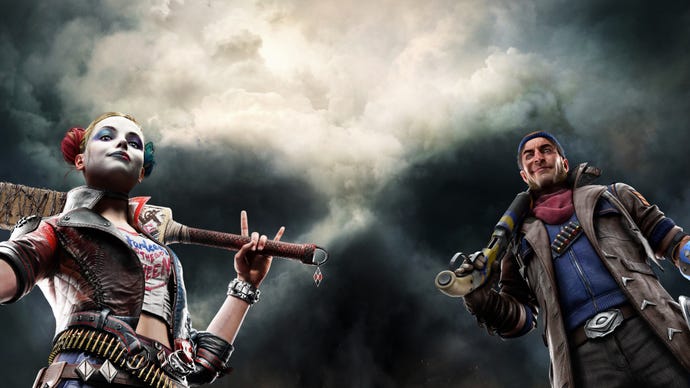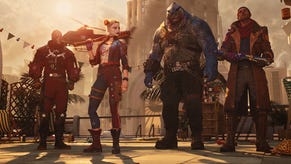The outlook on Suicide Squad and Skull and Bones is tepid – is this the end of the live service craze?
Two major live service games are about to come out, and player sentiment ranges from actively opposing them, to a big giant meh.
In February, we’re getting two games that explicitly position themselves as ongoing, live service games. Releasing exactly two weeks apart. Both games have been in development for longer than you’d expect - and certainly longer than usual for their respective teams. They’ve both been delayed a few times, though one has a clear lead over the other (and most games) there.
Suicide Squad: Kill the Justice League comes out February 2. Two Fridays later, Skull and Bones follows. But something about how the two games are perceived in this pre-launch period doesn’t quite line up with what we’ve seen with similar games in the past.
The problem, really, is that it’s hard to pinpoint exactly why each game is enshrouded in this negative cloud. Sure, we can go back and look at player reaction at reveal, and chart a map of how sentiment has shifted (or hasn’t) in the weeks and months since. We could even analyse what mistakes could’ve been avoided or how certain things could’ve been communicated better, but none of that really leads to a compelling conclusion.
No one wants any game to fail (especially since the brunt of any sales failure is felt by the developers in the trenches, and not the executives who made many of the decisions that lead to their own products’ demise). But you can’t help but wonder whether we’ve just reached 'peak live service', and the two games might’ve had a better chance five or so years ago.
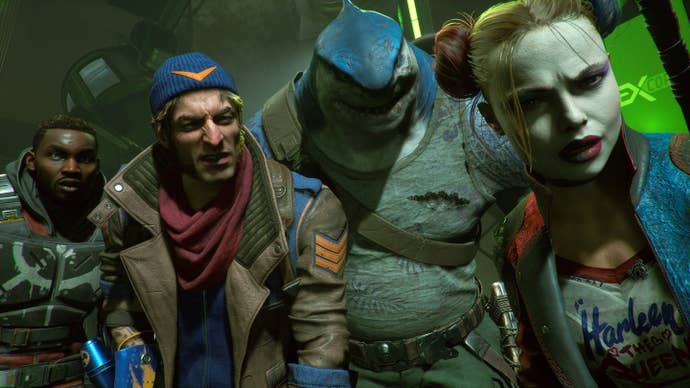
Let’s start with Suicide Squad: Kill the Justice League, a name that’s already so bloated it acts as a sort of poetic foreshadowing of the game it’s slapped onto. Suicide Squad was always going to have an uphill battle selling people on its pitch (think of Marvel's Avengers and its live service failure, for example).
It’s a shooter from a studio that’s only made a certain style of character-action games. They were so good, in fact, they effectively established a blueprint for the genre that’s still being followed (and often done worse) to this day. But it’s not just the fact its genre is unexpected that’s putting people off; Suicide Squad has the appearance of the very same games people have come to expect from developer Rocksteady.
It takes place in an open-world version of a popular location from the comics - and one we’ve never seen realised in this way before. It’s played from the same third-person perspective. Its characters have traversal and combat abilities that all could very easily have been modelled after the Batman Arkham games (which still hold up, 15 years later). But then you watch it in action, and it suddenly becomes unrecognisable as a game made by that same developer. It’s like opening a pizza box and finding a salad bowl. It may be the best salad bowl that’s ever been made, but that the disappointment of it not being a pizza will always overshadow the quality of whatever is in there.
All of that is enough for Suicide Squad’s chances to be dire, but Warner Bros. and Rocksteady had to also reveal it as a live service game that will be supported for years to come with new playable characters and new locations and blah blah blah. That was it, there was no going back from that moment.
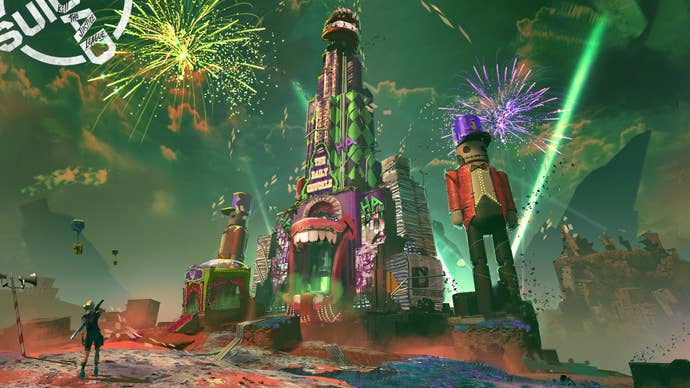
This isn’t just another unexpected addition for a game made by a studio known for its single-player games, the revelation comes at a time when more and more of us are quite comfortable calling out the quantity of live service games that exist, and rejecting the few that get announced still.
It’s also a matter of simple maths; most of us have found our live service game of choice. If you don’t care enough to commit to one, Suicide Squad is unlikely to be the one you’ll be spending most of your 2024 with. Nevermind the fact those games thrive on co-op play with people you know, so someone in the group will need to advocate for it well enough if there’s any chance the rest will follow along.
People are just over the idea of shooting the same four-to-six enemies over and over in different contexts and different settings as they watch damage numbers fly out of them while trying to land consistent shots on their weak points. All for what? Well, gear, of course! And the never-ending pursuit of power. But none of that matters if you don’t care to invest enough of your time for… any of it to matter.
When it became clear the prevailing sentiment from the media and content creators was that Suicide Squad’s gameplay simply wasn’t fun enough to anchor the experience, Rocksteady made the highly unusual decision of lifting part of the NDA off its closed alpha, which it had run just weeks prior. This is perhaps the most desperate I’ve seen a major studio be against what feels like an overwhelming (and undoubtedly shocking) audience rejection, and I doubt it added any real “balance” to the conversation to justify it.
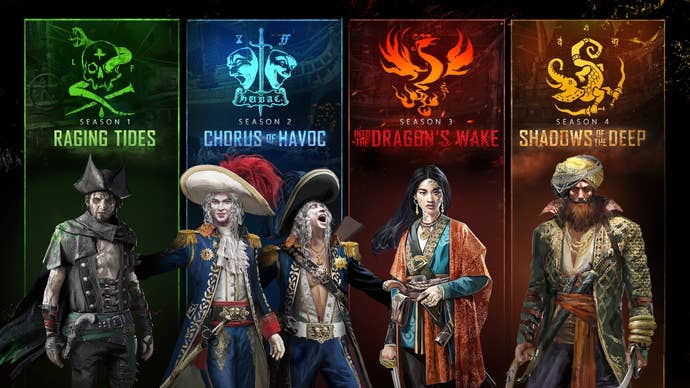
By comparison, Skull and Bones is a fairly benign attempt at making a live service game out of a popular mechanic from one of the publisher’s past games. It almost feels like turning an unexpectedly popular multiplayer mode you’d find in an Xbox 360/PS3 game, standalone.
Just like in that example, however, this is something that needed a very quick turnout. Not 10 years in the oven. Yes, people couldn’t stop praising Assassin’s Creed 4: Black Flag’s ship combat and sailing in 2013, and may have even called for an entire game to be based on those same mechanics, but who still wants that in 2024?
Ubisoft Singapore’s troubles with developing Skull and Bones are understood to be the reason it’s taken the studio this long just to ship the game (no pun intended), all while missing multiple previous release dates. It’s clear studio culture and leadership issues played a major role in that process.
But even if that development turmoil wasn’t in the picture, Skull and Bones comes across as reheated fast food that somehow wants to compete with chef-cooked meals. Most would have been fine with it being a straightforward single-player game with Black Flag sailing mechanics expanded and deepened, but it’s coming out in 2024, so it has to also be a live service game. It’s feels cruel for two games to face this live service games reckoning, but you have to admit it’s a little amusing that they’re getting such similar reactions, and dropping just two weeks apart.
Will this prove, finally, that the live service trend has run its course? Only time will tell.
